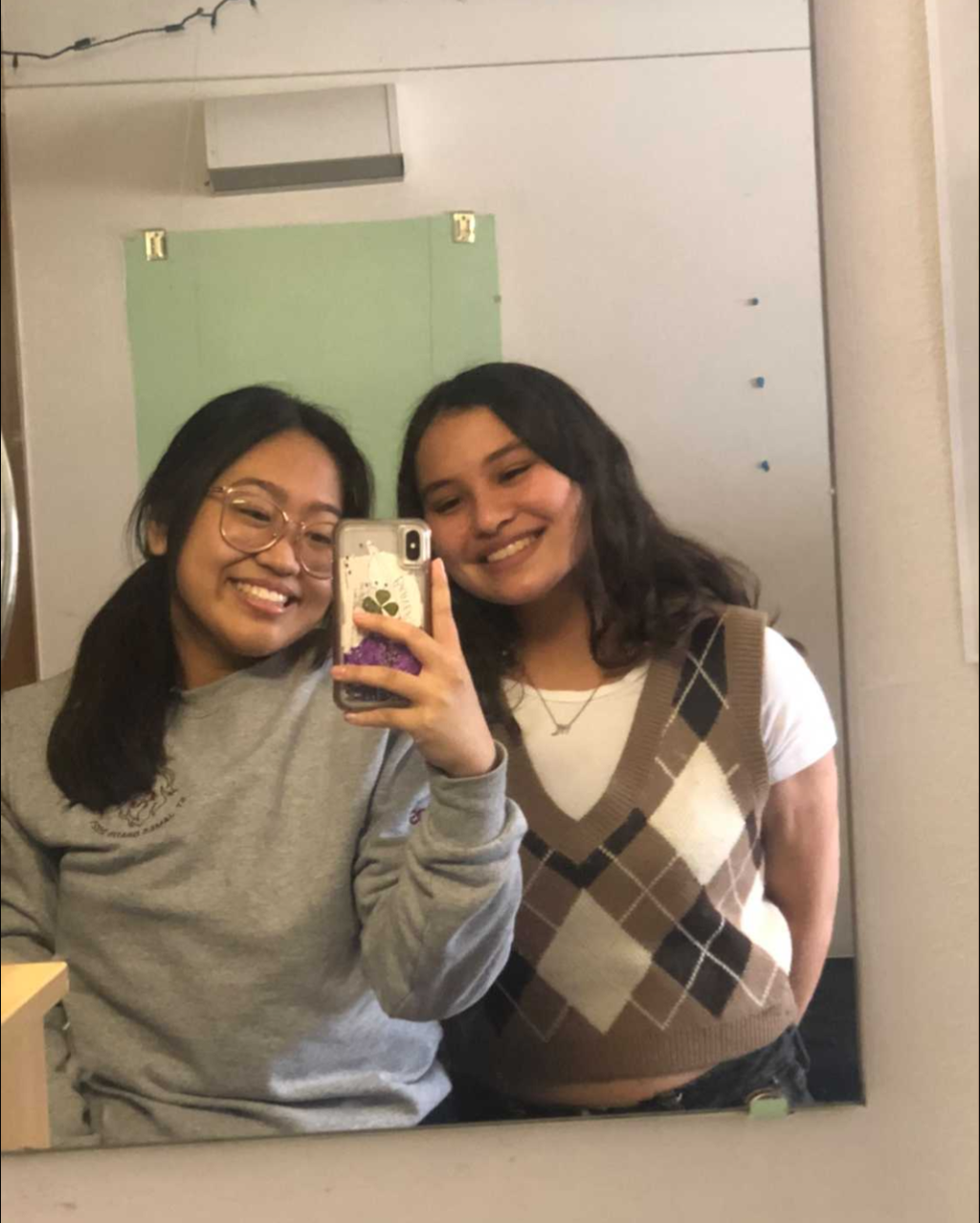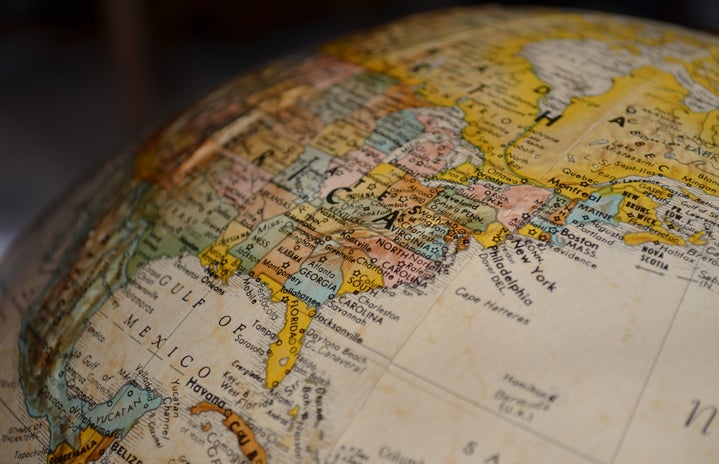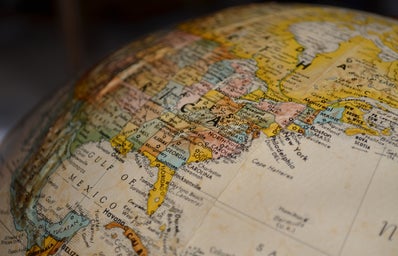by Emma Rychliwsky and Giselle Castillejos
Emma’s experience
My Lola (Tagalog word for “grandmother”) was born in the great city of Manila, Philippines where she married my Lolo (Tagalog word for grandfather) and they had my Titas and Tito (aunts and uncle). When my Lola was in her 20s, she moved to northern Ontario where my mother was born. Fast forward a few years, and the wasian child named Emma was born!
self-Reflection
To be honest, it took me a while to become comfortable in my skin. I remember looking at my face in the mirror as a kid and feeling confused. “Confused” is the best way I could describe the feeling. I didn’t think I was ugly, but I felt confused, and out of place, because I didn’t look like the kids on Nickelodeon. I was never really that connected with my Filipino side, but every time I went up to see my Lola, Titas, and Tito, I was reminded of the warmth and smiles that come with having Filipino relatives.
Throughout my childhood, I perceived myself as white because I was often disconnected from my Filipino side. However, I began to realize my Filipino identity and identity as a POC once I entered high school.
challenges
The high school that I went to was, to put it simply, very white. My time in high school complicated my relationship with my ethnicity. I was involved in theatre at school, and my POC friends and I always found that it was the white, blonde girls who were preferred for the lead roles. No one at my high school was overtly malicious and many of the “white, blonde girls” that I mentioned are very nice people, but nonetheless, this prejudiced energy underlined the school environment and it made me feel less secure in my ethnicity.
I find that at Queen’s I have a similar experience to high school but on a broader scale. Here, Eurocentric beauty standards are being put on a pedestal. This is something that many POC people experience, especially in a white environment. Queen’s is known as a “white” school and honestly, my experience here testifies to that. I think that Filipino features are beautiful, and it pains me to see Eurocentric features be the standard that is praised at Queen’s (from my experience at least.)
the power in being filipino
I would be lying if I said that I am completely over my idealization of Eurocentric beauty (cue Strawberry Blonde by Mitski).
But I’m done with saying “woe is me” when it comes to my Filipino heritage- Filipino features, culture, and food are all beautiful and it is absolutely not something to hide from the rest of the world. Whenever I am with my Filipino relatives, I am greeted with delicious foods like adobo, pancit, and sinigang, and my Lola’s house has colorful decor that always manages to cheer me up as soon as I enter.
All this to say that I now love being waisian. After all, I get to eat delicious Filipino food and I can relate to Olivia Rodrigo.
Giselle’s Experience
I am a proud Full Filipino who was born and raised in Guelph, Ontario, Canada – roughly 4 hours from Kingston. My mom was born in Manila, the “Hustle-and-Bustle” capital of the Philippines, and my dad was born in the quaint province of Batangas. I visited the Philippines when I was 7-years-old, and have been dying to go back ever since! The consistent 30+ Degree weather was almost unbearable, but visiting my relatives and getting to know where I came from made up for it.
Growing up in Canada during my early elementary school days, I was unable to connect with most of my peers during lunch. My meals seemed unfamiliar in comparison to others, as I often brought rice, meat and sauces. It made me feel withdrawn from those in my class. But, over time, I’ve come to appreciate the power of representation being a Filipino, because I continue to meet empowering Filipinos such as my lovely co-writer, Emma, who courageously shared her experience of growing up Filipino in Canada.
pAMILYA (Family)
Believe it or not, my dad has 8 other siblings, 7 of which immigrated to Canada in their early 20’s. I can’t imagine leaving behind all that I know at such a young age, and how being 20 is a mere 2 years away for myself.
A highlight of my childhood consisted of lively Fam-Jams: Scrumptious Filipino food waiting for me at the door, gathering to watch Manny Pacquiao Boxing Matches, Titos absolutely shredding Karaoke, Titas greeting you at the door telling you to “Eat! Eat! Eat!”, and a welcoming family-orientated community to which I am beyond grateful for.
I am currently enrolled in the Concurrent Education program here at Queen’s, working towards being a High School Drama and English Teacher. I guess you can say that wanting to inspire others through education runs in the family, seeing that my Lola (Grandma) owns a private school in her hometown, and has been teaching Grade’s 5 and 6 for over 52 years! She’s one of my all-time inspirations as she puts her heart and soul into all that she does, while ensuring all those around her feel welcomed and cared for. Shoutout and much love, Mama Jane!
What I’ve found helpful to get familiar with speaking Tagalog is having my mom speak to me in her native language at home. Moreover, if I am ever unfamiliar with a Filipino expression or word, I simply inquire about it! I grew up watching Teleseryes with my mom (Filipino Drama Shows) and someday I hope to speak the language fluently. It’s definitely a journey, but as with everything, we take it “One Step at a Time!” (Cue Jordan Sparks).
tHE prESSURE TO peRFORM
Like I said, both my parents immigrated to Canada at a young age for a better lifestyle. Sometimes in high school and even now, I put pressure on myself to do well in my academics or personal matters due to the sacrifices that my parents made to come to Canada, leaving behind their home. The pressure never stemmed from my parents, but from myself, as I wanted to make them proud and make their sacrifices worthwhile.
If you have ever felt this way or currently do have parents who emigrated from another country to Canada, remember that you are not alone. While there may be pressure to perform well, remember that you are doing the best you can, even when it may not feel like it, and that your guardians love you for you. Reach out to your parents or trusted loved ones about how you’re feeling and remember that your worth is never defined by your transcript or productivity; it’s about the extraordinary, beautiful and intelligent individual that you already are. You are enough and always will be.
THE pOWER IN BEING fILIPINO
There’s much power and gratitude in getting to represent a culture as embedded with love, talent, resilience, heart as the Philippines is. I proudly wear Red, Yellow and Blue across my heart. One of my favourite things about being Filipino is experiencing the love amongst the Filipino community and witnessing how proud they are to represent their culture in various aspects.
It fills me with so much joy getting to see empowering Filipinos/POC being represented in the 21st century such as Catriona Gray (Miss Universe 2018), Erika Casupanan (Winner of Survivor Season 41), Jon Chu (Director of Crazy Rich Asians and In the Heights), Jacob Batalon (Ned Leeds from the recent Spiderman films), Bruno Mars, Olivia Rodrigo and more whom of which I look forward to admiring. In saying this, we must keep amplifying voices that have been or are currently diminished. Researching and educating yourself on various forms of media (novels, films, shows, etc.) from the Filipino/POC creative community are great places to start.

The authors: Giselle (left) Emma (right)
P.S! If you’re a Filipino at Queen’s or within the broader Kingston community, or are even interested in learning more about Filipino culture, both Emma and I would highly recommend checking out the Queen’s Pinoy Association! (@queenspinoys on Instagram / Email: qfilipinos@clubs.queensu.ca)




